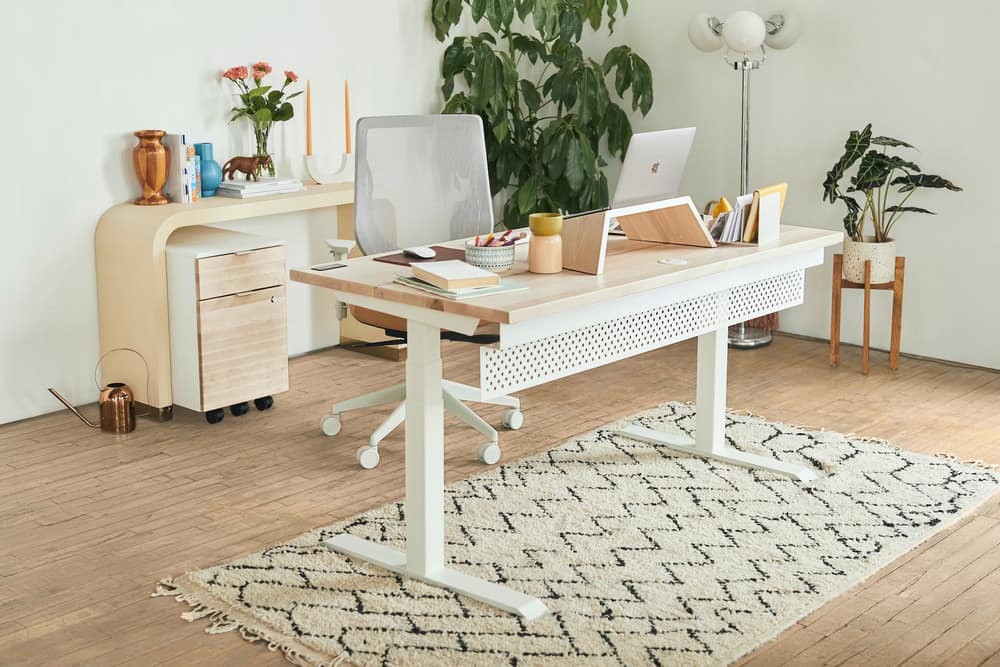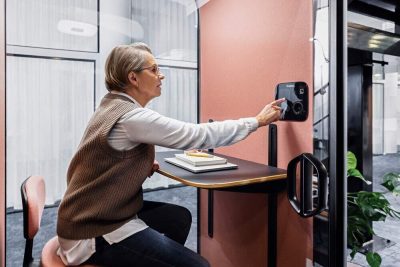
As remote work reshapes the modern workplace, creating a practical and comfortable home office environment has become essential. The office chair is among the most crucial components of a productive home office setup. While it may seem minor, the right office chair can significantly impact your work performance, comfort, and overall well-being. In this guide, we’ll explore the key factors to consider when selecting the best office chair for remote work success.
Why Your Home Office Chair Matters
Your choice of office chair goes beyond aesthetics. It directly affects your posture, comfort, and even your health. Here’s why the right chair matters:
• Comfort: Spending long hours at your desk can take a toll on your body. An ergonomic office chair provides proper support, reducing the risk of discomfort and strain.
• Productivity: Comfortable seating promotes focus and concentration. You can channel your energy into your work tasks when you’re not constantly shifting to find a comfortable position.
• Posture: Poor posture can lead to back pain and other musculoskeletal issues. A well-designed office chair helps you maintain a healthy posture, essential for long-term well-being.
• Health: Investing in an ergonomic chair can prevent or alleviate chronic pain and discomfort, such as lower back pain, neck strain, and shoulder tension.
• Mental Well-Being: Physical comfort contributes to mental well-being. Feeling comfortable in your workspace can improve your mood and reduce stress.
Factors to Consider When Choosing an Office Chair
• Ergonomics: Look for chairs designed with ergonomic principles in mind. Features such as adjustable lumbar support, adjustable armrests, and seat height can significantly affect your comfort level.
• Adjustability: An adjustable office chair allows you to customize the chair to your body’s needs. Look for options with multiple adjustment points, including seat height, tilt, and armrests.
• Lumbar Support: Proper lumbar support maintains the natural curve of your spine, reducing the risk of back pain. A chair with adjustable lumbar support ensures optimal comfort.
• Seat Depth and Width: Your chair’s seat should accommodate your body size comfortably. Look for a seat depth that allows a few inches of space between the back of your knees and the seat edge.
• Material and Cushioning: The fabric and cushioning of the chair impact both comfort and durability. Consider breathable materials that promote airflow, preventing discomfort from sitting for extended periods.
• Mobility: If your workspace requires you to move around frequently, consider a chair with swivel and casters for easy mobility.
• Style and Aesthetics: While comfort is paramount, aesthetics also matter. Choose a chair that complements your home office decor and personal preferences.

Different Types of Office Chairs
• Task Chairs: Designed for basic work tasks, task chairs offer essential ergonomic features and are suitable for short to moderate periods of use.
• Executive Chairs: Offering enhanced comfort and a more sophisticated design, executive chairs are suitable for extended work sessions and provide a sense of luxury.
• Mesh Chairs: Mesh chairs feature a breathable mesh back that promotes airflow and keeps you cool during work hours.
• Leather Chairs: Leather chairs are known for their luxurious appearance and comfort. They often come with padded cushions and are ideal for professional settings.
• Kneeling Chairs: Kneeling chairs promote an open posture by positioning your body to reduce strain on the lower back.
Finding the Perfect Chair for You
Test Before You Buy: Whenever possible, test different chairs in person to assess their comfort and adjustability.
• Read Reviews: Online reviews can provide insights into other users’ experiences with specific chair models.
• Consider Your Work Style: A chair with good lumbar support and armrests is essential if you spend most of your time on the computer. If you frequently move around, prioritize mobility.
• Budget: While investing in a quality office chair is a wise decision, options are available at various price points to suit your budget.
• Warranty: Look for chairs that come with a warranty, as this indicates the manufacturer’s confidence in the product’s durability.
Conclusion:
As remote work becomes the norm, the importance of a comfortable and well-equipped home office cannot be overstated. The office chairs you choose is crucial to your overall work experience, affecting your productivity, health, and well-being. By carefully considering ergonomics, adjustability, and your work style, you can select an office chair that supports your remote work success and enhances your comfort and satisfaction as you navigate your professional tasks from the comfort of your home.








